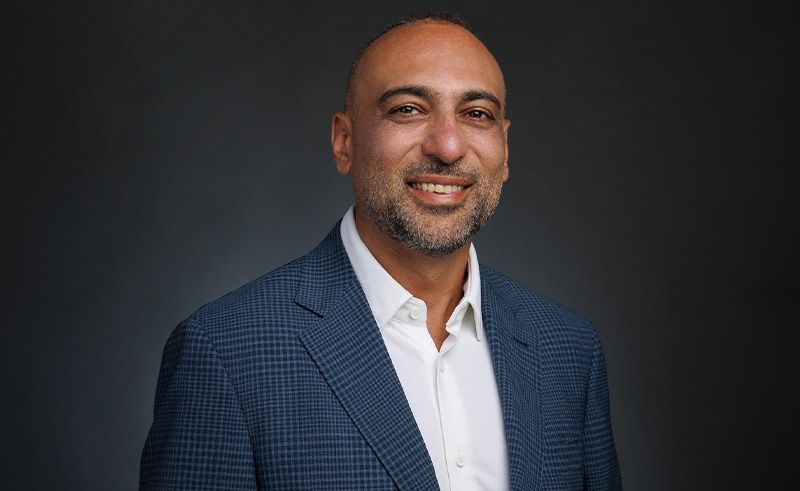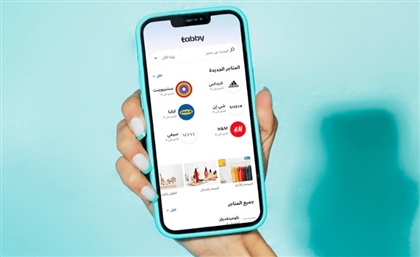How UAE Fintech Maly Uses AI to Help People Save Big in the GCC
Launched in 2023 by Mo Ibrahim, the startup leverages emerging technology to provide users with tools, solutions and information to help them save money.

UAE-based fintech startup Maly aims to support people to become more financially literate and independent through the power of AI. Launched in 2023 by Mo Ibrahim, the startup leverages emerging technology to provide users with tools, solutions and information that would enable them to save and become better at managing their finances.
With the cost-of-living skyrocketing since the start of the COVID-19 pandemic in 2020, millions of people in the Middle East and across the globe are struggling to save. According to a recent Deloitte survey on Gen Zs and millennials, 51% of respondents said that they are living paycheck to paycheck.
-9f55ef6d-bf87-48a1-a1e3-32df22f8bf70.jpg)
Ibrahim wants to change that. Tech savvy entrepreneur and business owner, he set out to launch a financial wellness company to make it easy for people to save money. “There are many ways to help people borrow money and spend money, but there are very few tools and techniques that help people save money,” Mo Ibrahim, Co-Founder of Maly, tells StartupScene. “With advanced technology and the rise of AI, these can be the real drivers for people to achieve a better life, and live in a better way.”
Despite being a young startup, Maly is already working with 18 banks in the UAE and is looking to expand to Saudi Arabia later this year.
AUTOMATED SAVINGS
It may come as a surprise that despite paying little to no taxes, many people in the GCC are not saving for retirement.
According to global consulting company Mercer, almost half of all UAE residents are delaying saving for their retirement until their late 40s and 50s, while 45% have no plans to ensure an adequate standard of living after they retire.
“Whether one has a higher income or a lower income, the saving culture is very much lagging behind in our region,” Ibrahim says. “There are many reasons for this: inflation, consumerism and the presence of a lot of credit in the market, as well as lack of awareness on financial literacy in many cases.”
To help turn the tide, Maly provides an automated savings feature and Visa debit card that links users’ bank accounts to the app, enabling them to save by automatically rounding up small amounts from everyday purchases. The automated savings can be done on a weekly or monthly basis, based on a person’s salary and financial goals. “We do it automatically and we also do it based on roundups, which is a very fun concept,” Ibrahim says. “It’s like a digital piggy bank. You spend using your bank card, we round up every transaction you make so you actually accumulate micro savings, and these small savings pile up and accumulate in your Maly visa card, which you can then use to purchase whatever you want. It's all about growing this culture of saving.”
-f5d88348-6a4b-4bcf-a1fb-ce3aa52c27db.jpg)
AI FINANCIAL ASSISTANT
While there may be a lot of hype around AI lately, the technology serves as a substantial core around which Maly’s platform is built.
The startup uses AI to provide educational information and content about financial wellness, as well as cater to the personal financial goals of users. Like a financial assistant, the AI tool will learn about one’s financial status and habits through the Visa debit card issued by Maly, in order to better understand their financial health and recommend relevant solutions.
“So, what we do is that we will not only give you facts, information and data that helps you in general understand how you can improve, but also recommend solutions for you by helping you create a proper savings plan, potentially guiding your investments among other tools and techniques as part of the Financial Assistant.”
He adds that such products are usually tailored for high-net-worth individuals, who receive bespoke financial advice. But with the advent of the transformative technology of AI, it can now be made accessible to everyone. “We want to leverage technology to provide this for everyone, to make everyone’s financial well-being a priority and help them build a healthier relationship with money,” says Ibrahim. “It’s like having a financial coach who helps you track your spending, and helps you with things like budgeting, financial planning, savings and investments.”
FUTURE GOALS
AI may have become a buzz word since the launch of Chat GPT almost two years ago, but its potential cannot be ignored.
According to PwC, the potential impact of AI in the Middle East is expected to reach $320 billion by 2030, with the UAE predicted to see the largest impact of close to 14% of 2030 GDP.
Despite the potential gains of AI, there are no formal AI regulations in the Middle East yet, making it challenging for some AI based startups like Maly to truly grow and thrive in the region.
“They just started releasing more regulations, like allowing open banking in Saudi Arabia, and potentially in the UAE,” Ibrahim says. “We're still very much in the early days of these developments, but I think this needs to be accelerated heavily in order to allow fintech startups, particularly AI tech startups in general, to thrive and achieve what they’re aiming for without having to go through a very lengthy process or very lengthy development cycle that sometimes circumvent that the good that we intend to do to the market.”
Regardless of regulation setbacks, Maly has successfully raised $1.6 million in a pre-seed funding round in May last year. Initially bootstrapped, the startup used the funding to launch in the UAE and initiate its expansion to Saudi Arabia. It is now looking to fundraise a seed round to further grow the startup across the region.
“What we're doing now is that we're in the middle of our seed round, our first seed round, and we're also raising to solidify our market growth,” he says. “We look forward to concluding this seed round soon so that we can focus on really growing to the next level.”
-189c2031-8c70-476b-bbb4-4b76fc5cd0f4.jpg)






















